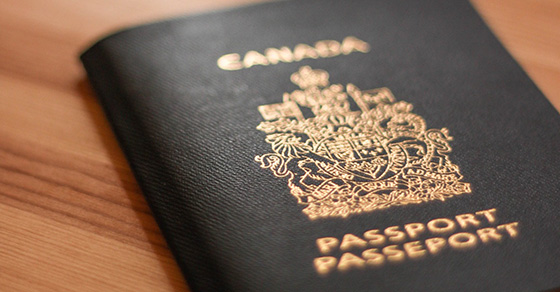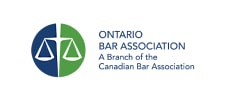As a naturalised Canadian citizen, it is possible for your citizenship to be taken away if it was obtained through false information or fraudulent means. If you lose citizenship, this can have serious effects on your life and future status in Canada. Citizenship revocation is a highly complex issue, and it is important to seek legal assistance if you are at risk of losing your citizenship.
What is Citizenship Revocation?
Section 10(1) of the Citizenship Act affords the Immigration Minister the authority to revoke a person’s Canadian citizenship if it was obtained through false representation, fraud or knowingly concealing material matters during the citizenship application process or in the process of obtaining permanent residence. It is vital when completing your citizenship or permanent residence application to always be truthful. Any information about you and your life, that is deliberately omitted or altered throughout your citizenship or permanent residence application can lead to you losing your citizenship.
Your citizenship can only be revoked on grounds of fraud, false representation or knowingly concealing information. This is the only way that Canadian citizens can have their citizenship status taken away. A previous provision of the Citizenship Act had allowed for revocation of citizenship on national security reasons; however, that section has since been repealed and those who were affected have been deemed to not have lost their citizenship.
The Revocation Process
If IRCC suspects that you may have obtained your citizenship with false representation, fraud, or knowingly concealing information, your information and file will be reviewed by the Citizenship and Passport Cases Division to decide whether revocation proceedings should be commenced. As an individual subject to revocation proceedings, you remain entitled to all the rights and privileges unless and until your citizenship is revoked – you will be entitled to due process and a chance to respond to allegations.
Before revocation proceedings are commenced, you will usually receive a “Request for Information Letter” that details the allegations made against you. This is an informal information-gathering process. After you receive this, you have an opportunity to provide a written response to the letter and the IRCC will determine whether to begin the revocation proceedings based on the information you provide.
If it is decided to commence the formal process of citizenship revocation, IRCC will send you a “Notification Letter Concerning Your Canadian Citizenship”. Under section 10(3) of the Citizenship Act, you must be provided with a written notice that your citizenship may be revoked. You will usually be given 60 days to provide a written response and any documents or information you wish to be considered by the government authorities, who will then decide whether or not to revoke citizenship.
As someone subject to revocation proceedings, there are generally two defences you can argue to try to stop your citizenship from being revoked. Firstly, you could argue that there was no fraud in the process of your obtaining permanent residence or citizenship. Secondly, you could request for citizenship authorities to consider your personal circumstances or humanitarian and compassionate grounds. In the latter instance, you would have to request the Minister to decide your case and if the reasons are compelling enough, they can waive fraud in the citizenship process if your personal circumstances are sufficiently compelling.
Revocation vs. Renunciation
Renunciation of citizenship is the voluntary loss of citizenship, which means you are willingly deciding to lose all rights and privileges of being a Canadian citizen and make the application yourself. If you renounce your citizenship, there will be a possibility to resume your citizenship in the future.
This is not to be confused with revocation of citizenship which is the involuntarily loss of citizenship and the process is instead commenced by the IRCC. Upon losing your citizenship through revocation, it is only possible to re-apply for citizenship after 10 years if you are qualified to do so.
A person cannot make an application for renunciation if the revocation process has begun, and you have received a notification letter. Furthermore, if you had made a renunciation application and you are subsequently provided with a notification letter to revoke citizenship, your renunciation application will be put on hold until a decision about your revocation is made.
Decisions by the Federal Court
The Federal Court is the decision maker for citizenship revocation cases unless you request the Minister to act as the decision maker. If the Federal Court is deciding your case, the IRCC will commence an action before the Federal Court to obtain a declaration that you obtained, retained, renounced, or resumed your citizenship by false representation, fraud, or knowingly concealing material circumstances. The IRCC only needs to prove that fraud occurred for the revocation to happen – the Federal Court does not have the jurisdiction to consider personal circumstances.
If the Federal Court makes a declaration, your citizenship is revoked. If the Federal Court denies your declaration, your citizenship will not be revoked, and you will remain a citizen of Canada.
Decisions by the Minister
Those subject to revocation proceedings can request IRCC / the Minister to decide their case, rather than the Federal Court. The Minister must consider all the circumstances of your case, and any finding of fraud is only a threshold issue. If you request the Minister as a decision-maker, they must also consider your personal circumstances in your submission, which includes but is not limited to:
- Length of time spent in Canada before and after acquiring citizenship;
- Establishment and connection to Canada before and after becoming a citizen;
- The presence of family in Canada;
- The best interest of a child directly affected by the revocation proceeding;
- Whether the decision could render the citizen stateless;
- A description of any hardships that the citizen may experience if their citizenship is revoked;
- Any hardship in the home country if the citizen is forced to return.
Usually, decisions made by the Minister will be based on written submissions and there will not be an oral hearing. However, the Minister has the discretion to hold a hearing if there is a serious issue of credibility, or you are unable to provide a written submission. If the Minister makes a decision on the revocation of citizenship, they must provide a decision in writing to you, as per section 10(5) of the Citizenship Act.
What Happens After My Citizenship is Revoked?
Appealing Your Revocation Decision
If a decision has been made to revoke your citizenship, it may be possible to appeal the decision.
If the Federal Court has made a declaration to revoke your citizenship, you may appeal the decision to the Federal Court of Appeal. However, your decision can only be appealed if there is a serious question of general importance is certified and stated by the Federal Court in rendering its judgement. Otherwise, a decision by the Federal Court is usually final.
If you had requested your case to be decided by the Minister, you may appeal the Minister’s decision to the Federal Court by way of application for leave and judicial review. This application must be made within 30 days of receipt of the refusal letter. This is not considered a full appeal, so no new evidence or witness testimony can be provided. If the Court overturns the Minister’s decision, it will send the case back to be redecided by the Minister in accordance with its reasons.
Impact on Your Status in Canada
During revocation proceedings, you will still remain entitled all rights and privileges as a Canadian citizen unless and until your citizenship is revoked.
Citizenship revocation does not automatically mean you will be removed from Canada. Your status after revocation will vary on a case-by-case basis.
If you had perpetrated fraud in only the citizenship application process, you would lose your citizenship and revert to being a permanent resident of Canada. However, if you perpetrated fraud in the process of obtaining your permanent residence, you will lose both your citizenship and permanent residence. In this case you would revert to being a foreign national or may be rendered stateless in some cases. Depending on the facts that were omitted or misrepresented, you may also be declared inadmissible to Canada and furthermore be subject to removal proceedings.
Additionally, if your citizenship is revoked, you will be prohibited from being granted Canadian citizenship for 10 years from the date of revocation.























